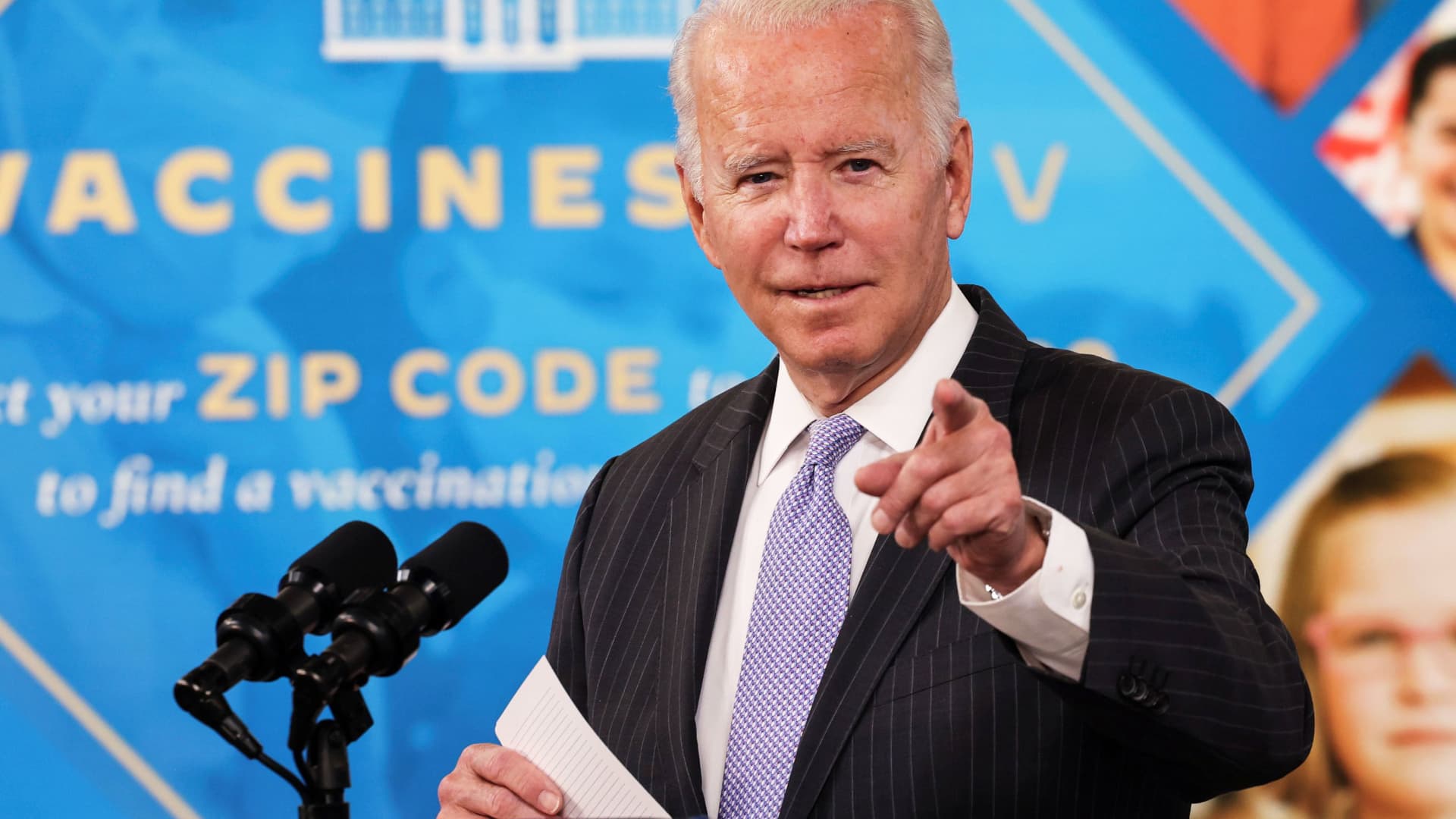President Joe Biden on Thursday said the U.S. has licensed a key technology used in the current Covid-19 vaccines to the World Health Organization, which would allow manufacturers around the world to work with the global health agency to develop their own shots against the virus.
The National Institutes of Health has licensed its stabilized spike protein technology to the WHO and United Nations’ Medicines Patent Pool, Biden said.
The spike protein is the component in the vaccines that induces an immune response, prompting the body to fight the virus. The NIH technology holds the proteins in a configuration that allows them to produce a more potent immune response. The WHO and the Medicines Patent Pool can now sublicense the technology to generic manufacturers around the world.
“We are making available health technologies that are owned by the United States government, including stabilized spike protein that is used in many Covid-19 vaccines,” Biden said.
The decision to share the vaccine technology comes ahead of a virtual global Covid-19 summit that the U.S. is co-hosting Thursday. Though the spike protein technology is crucial, the vaccines also include other components — some of which are proprietary to the companies.
The WHO, in a statement Thursday, said the license would make the crucial technology accessible to people in low and middle-income countries and help end the pandemic.
The technology behind the Covid vaccines has been a major sticking point throughout the pandemic. The WHO has repeatedly called on the vaccine makers to share their know-how, but Pfizer and Moderna have declined to license the technology behind their shots to the Medicines Patent Pool, one of the U.N.’s public health agencies like the WHO. Moderna, however, is not enforcing its patents in 92 poorer nations. Though Pfizer isn’t sharing the technology, it’s providing the U.S. government with 1 billion doses for donation to poorer nations.
The WHO has gone around the vaccine makers, setting up a manufacturing hub in South Africa to produce vaccines based on the messenger RNA technology that Pfizer and Moderna use in their shots. South African scientists are producing generic copies of Moderna’s vaccine based on publicly available information since the biotech company isn’t enforcing its patents.
WHO Director-General Tedros Adhanom Ghebreyesus called on Moderna shareholders at the biotech company’s annual meeting to vote in favor of a resolution that called for a third-party investigation on the feasibility of transferring technology.
“If Moderna worked with us, we could submit the hub’s vaccine for approval at least one year sooner, which would save lives, decrease the risk of variants and reduce the pandemic’s economic toll,” Tedros said.
The U.S. is also contributing another $200 million to the World Bank’s pandemic preparedness fund for a total contribution of $450 million, and an additional $20 million through the United States Agency for International Development support the deployment of Covid tests and antiviral treatments in eight countries. The White House said it is also expanding its vaccine donations through Pfizer to include booster doses and shots for children.
The donations are far cry from the $5 billion the White House has requested from Congress to support vaccinations around the globe. Congress has failed to pass Biden’s broader request for $22.5 billion in Covid funding due to opposition from Republicans who are opposed to spending that much.
Senators reached a $10 billion Covid funding deal in April which did not include money for the global vaccination campaign. Republicans have blocked the Senate from passing the $10 billion in a dispute over the Centers for Disease Control and Prevention’s decision to end a controversial policy that returned asylum seekers at the nation’s border back to Mexico as public health measure, known as Title 42.
